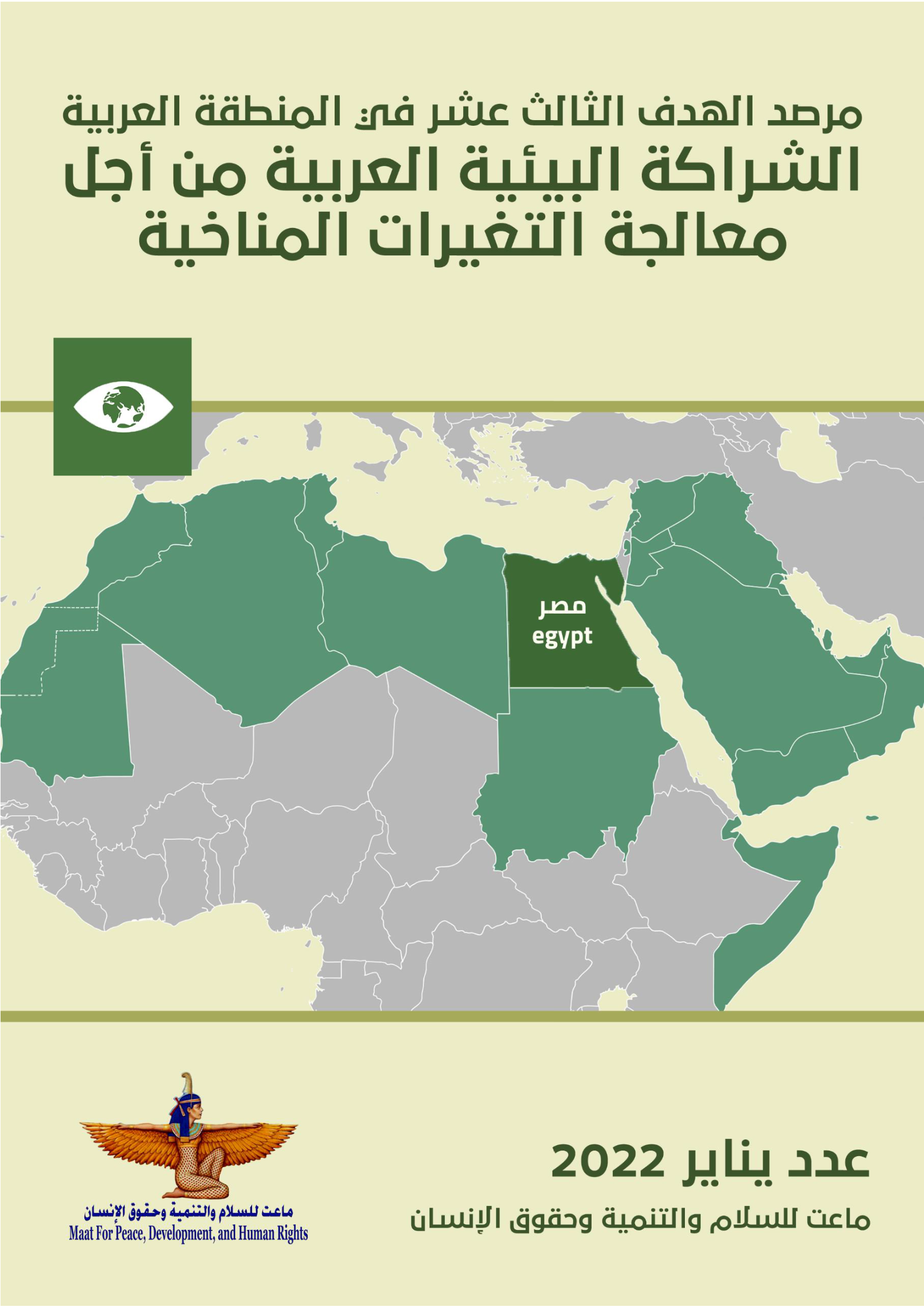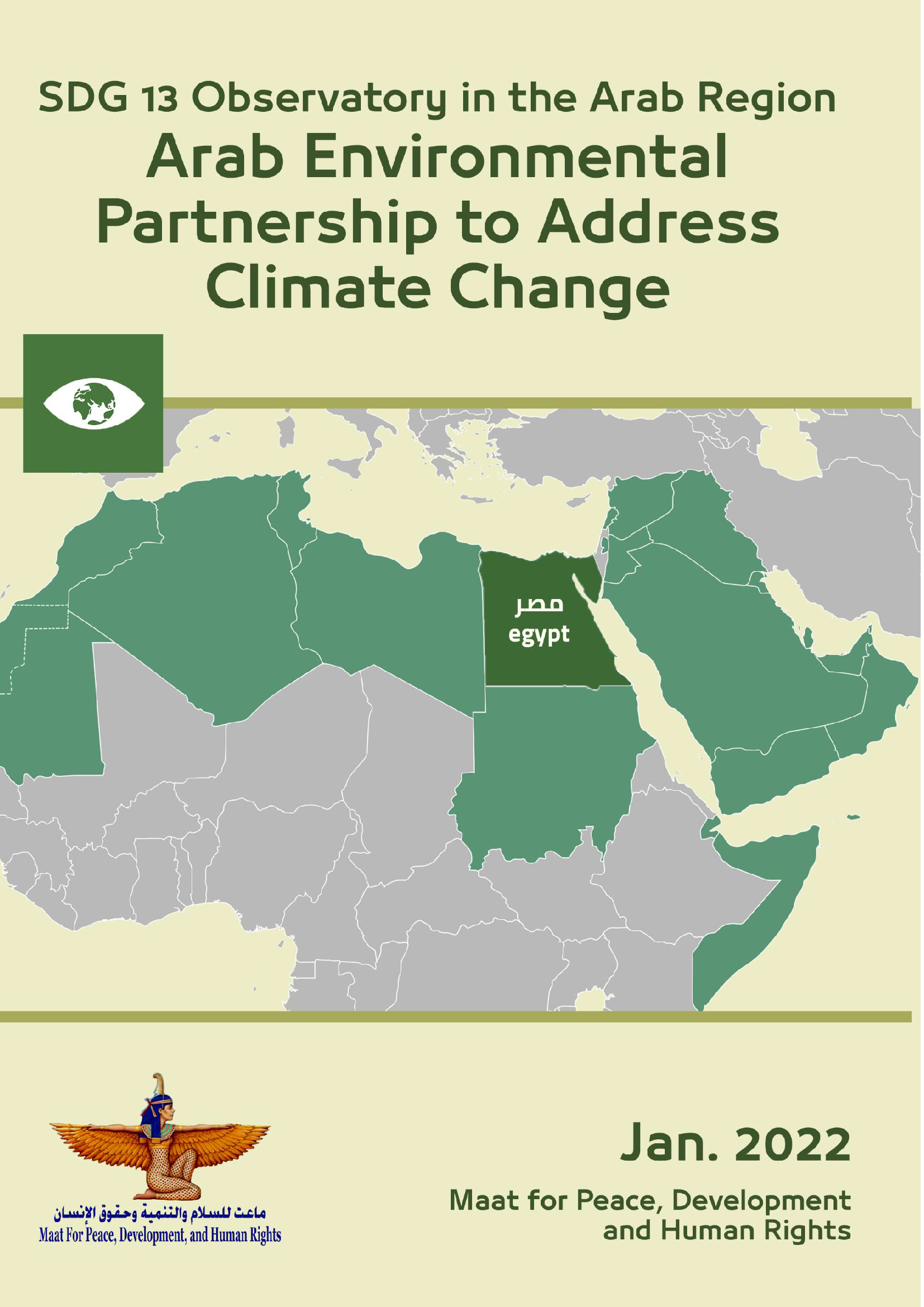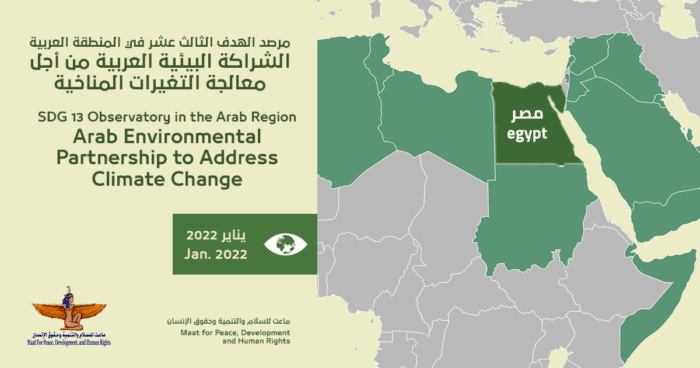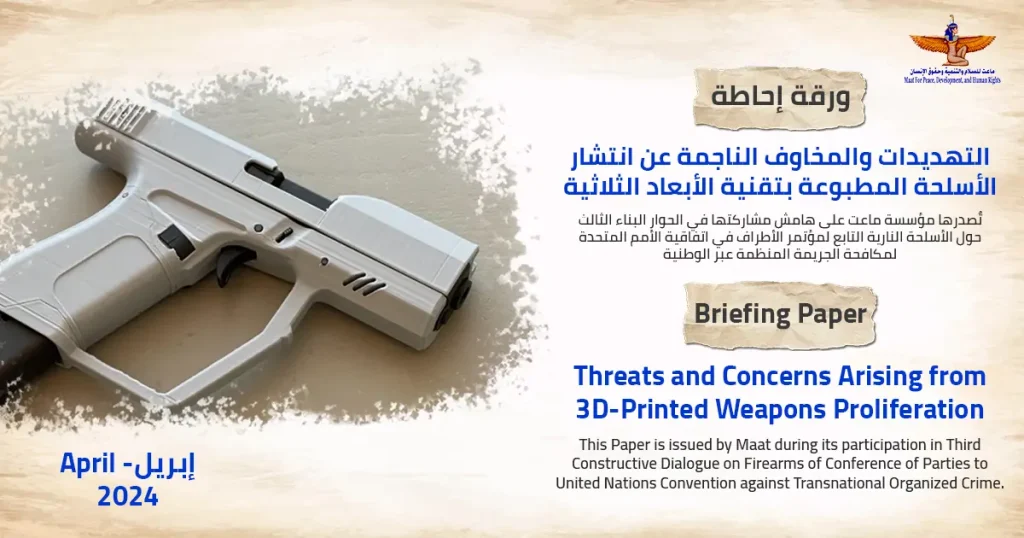Maat: Climate change forces hundreds of thousands to fall into poverty and hunger in the Arab region
Okeil: Arab legal systems must be reconsidered to be compatible with United Nations Framework Convention on Climate Change
Salah: The Arab countries in dispute suffer from multiple challenges that impede the course of climate action
Maat for Peace, Development and Human Rights stated that the Arab countries are at the top of the countries most vulnerable to climate change repercussions that are affecting the whole world. This alarming phenomenon continues to subject hundreds of thousands to live in extreme poverty, die of starvation and forcibly displace their homes.
The above was detailed in Maat’s new publication entitled "SDG 13 Observatory in the Arab Region", which tracks good practices and challenges faced by Arab countries in achieving goal 13 of the 2030 Agenda for Sustainable Development.
January’s SDG 13 observatory monitored the Arab governments’ most prominent efforts to manage climate change in accordance with the United Nations Framework Convention on Climate Change. Egypt led these countries, given its recent commendable steps in this regard, topped by the launch of its National Climate Change strategy 2050, and its efforts in January that comes in consistence with the Strategy.
Commenting on the first issue of the study, Ayman Okeil, the human rights expert and president of Maat, indicated that in light of the suffering of some Arab countries from legislative deficiencies related to climate change, there is an urgent need to call on Arab countries to review their national constitutions and amend them in line with the United Nations Framework Convention on Climate Change.
Okeil highlighted the importance of climate partnerships between Arab countries, which is based on exchanging experiences with regard to limiting climate change in the region, increasing joint meetings in order to support government moves in limiting climate change, exchanging experiences and successes that could encourage increased efforts, in implementation of the SDGs 13 and 17 of the UN agenda.
On the other hand, Mariam Salah, a researcher at the African Affairs and Sustainable Development Unit, said that the governments of Arab countries have faced many challenges that impeded the full realization of all the targets of the SDG 13, especially for Arab countries plagued with ongoing conflicts such as Yemen, Syria, Somalia, where managing climate change was considered a “luxury” for these countries, compared to the more pressing issues related economy and security.
In the context of the efforts of some Arab countries to organize training workshops in the state sectors in order to raise capacities in the field of climate change, Salah recommended compliance with these steps and the implementation of target 13.3 on improving education, awareness-raising, and human and institutional capacity on climate change mitigation, adaptation, impact reduction and early warning, especially in conflict countries, and stressed that climate change is a vital issue that must be given special attention.
Notably, “SDG 13 Observatory in the Arab Region" is a monthly research periodical issued by Maat for Peace, Development and Human Rights to monitor good practices and obstacles facing Arab countries to achieve its goals, in order to complete Arab development efforts, given Maat’s capacity as a Northern African Coordinator in the NGO Major Group-Africa.

 |
 |











